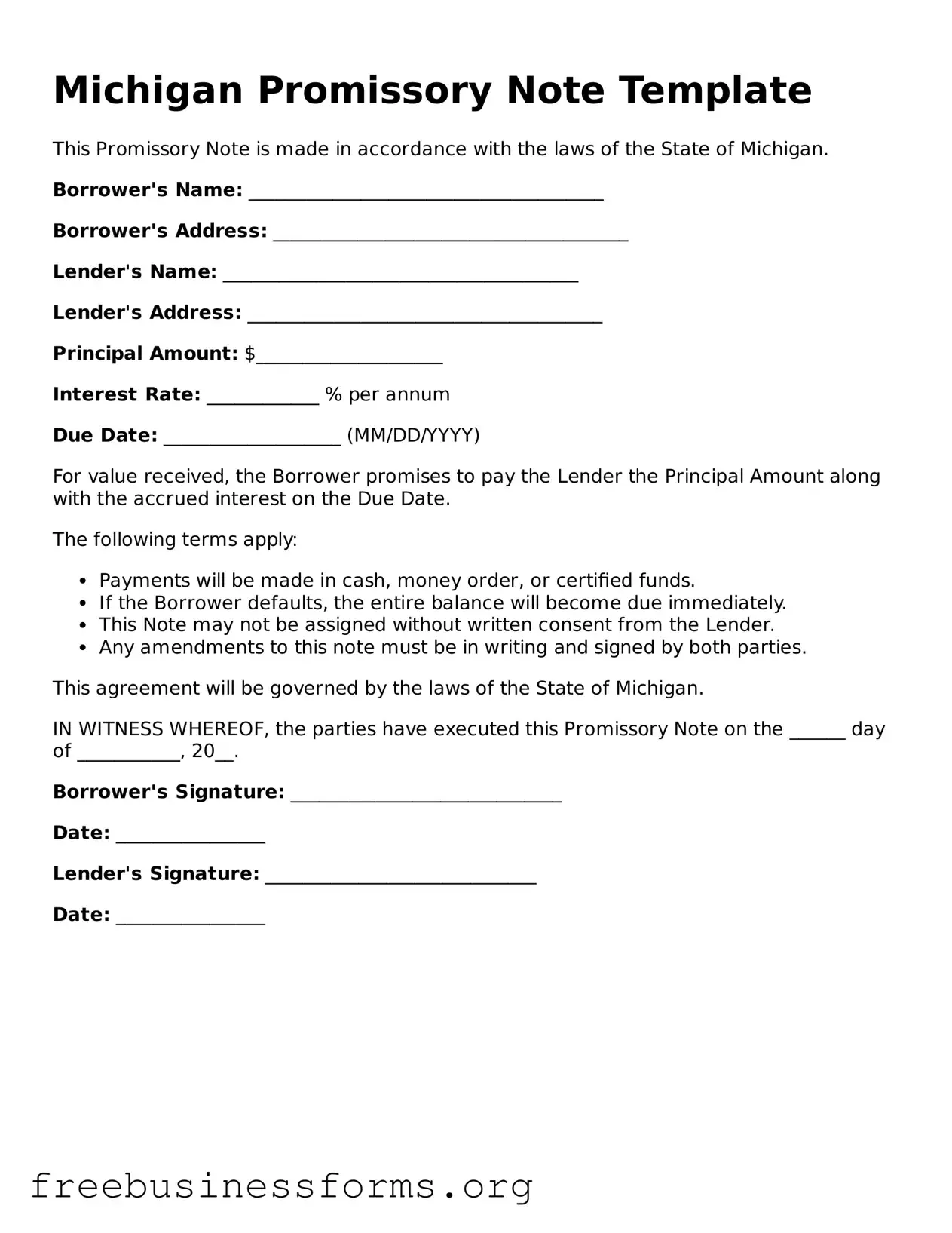Blank Promissory Note Template for Michigan
A Michigan Promissory Note is a legal document that outlines a borrower's promise to repay a specified amount of money to a lender under agreed-upon terms. This form serves as a crucial tool in various financial transactions, ensuring both parties understand their obligations. By clearly detailing the loan amount, interest rate, and repayment schedule, the Promissory Note helps protect the interests of both the borrower and the lender.
Open Form Here

Blank Promissory Note Template for Michigan
Open Form Here

Open Form Here
or
↓ PDF File
Quickly complete this form online
Complete your Promissory Note online quickly — edit, save, download.